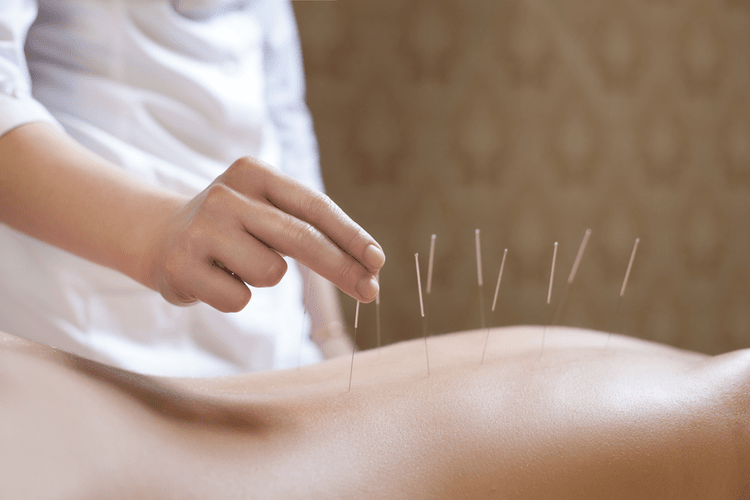Contents
Lastly, he obtained graduate education in public health and business administration to contribute to national healthcare reform research and implementation. Their mechanism of action isn’t affected by alcohol consumption. It’s relatively safe to consume alcohol as long as you’re in good overall health and have confirmed with a healthcare professional. Being on any blood thinner will increase your risk of bleeding.
Is sleeping drunk better?
Alcohol may aid with sleep onset due to its sedative properties, allowing you to fall asleep more quickly. However, people who drink before bed often experience disruptions later in their sleep cycle as liver enzymes metabolize alcohol.
We publish material that is researched, cited, edited and reviewed by licensed medical professionals. The information we provide is not intended to be a substitute for professional medical advice, diagnosis or treatment. It should not be used in place of the advice of your physician or other qualified healthcare provider. Too much alcohol can don’t drink alcohol while taking these medications contribute to many diseases of organs such as the liver, heart, and pancreas and is a factor in developing heart disease. Consuming more than two servings of alcohol every day can increase the risk of developing blood clots. When alcohol is included in the mix, it can alter how thin your blood is and also change how active the medication is.
Blood Thinner Drugs
Generally, these medical conditions can cause blood clots and anticoagulant medications increase your risk of bleeding. Patients taking blood thinners to treat heart disease often also take medications, such as Praluent,Repatha,Welchol,Colestid, andLivalowhich help to reduce cholesterol levels. As a side effect statins can reduce the level of platelets in your blood, suggesting these drugs might also act asmild anticoagulants.
- Alcohol and blood thinners interact in different ways that will vary for each individual.
- Usually, this after three or more drinks are consumed in a single sitting.
- However, the study did not distinguish between red and white wine, which Mukamal said would be interesting to look at more closely.
- Blood thinner medications prevent blood from sticking together which increases the amount of time it …
- If a block forms in the brain, it can cause an ischemic stroke, which starves parts of the brain of oxygen.
- So, could someone like Kendra just use alcohol to thin their blood, instead of taking prescribed blood thinners?
When combined with blood thinners, the risk of uncontrollable bleeding is compounded because of the effects of both alcohol and the blood thinner. Alcoholthins your bloodby slowing the normal action of fibrin, a molecule that builds blood clots. For this reason, people who use alcohol may find that they bleed more easily and for longer periods.
Your medication, $49 per month
When you’re injured, blood cells called platelets rush to the injury site. Platelets also release proteins called clotting factors that form a plug to close the hole. Dr. Harb moved to New York City, choosing a career path in academic medicine as an assistant professor at the Donald and Barbara Zucker School of Medicine at Hofstra/Northwell. There, he teaches and works with cardiovascular and medical trainees as well as medical students. He is a Fellow of the American College of Cardiology and American board-certified in general cardiology, echocardiography, and stress-testing, and nuclear cardiology.

While moderate alcohol use does have a blood-thinning effect, using alcohol specifically to thin your blood or have a healthier heart is not recommended. Drinking alcohol in moderation may have a protective effect on your blood vessels. Some research finds that alcohol increases levels of high-density lipoproteins (HDL, aka “good cholesterol”). This healthy type of cholesterol helps protect your arteries and prevent the blood clots that can lead to heart attacks and strokes.
One standard drink for women and two standard drinks for men per day may improve heart health, according to the studies. Drinking alcohol allows it you enter your bloodstream through your digestive system. Once it enters your blood, it’s filtered by your liver before it’s able to enter your brain. Your body is able to store water, sugars, and fats, and everything else is processed out.
Treatment Programs
Taking both together could compound the anticoagulant effect and increase your risk of bleeding. Blood thinners can be particularly dangerous for people withalcohol addiction. They often find it more difficult to restrict their alcohol use to a moderate amount or avoid combining alcohol with blood thinners. This increases the likelihood of complications from mixing alcohol and blood thinners.
Anyone who experiences severe symptoms, such as constant bleeding, intense pain, or dizziness, should seek emergency care. Doctors and pharmacists can advise people whether they should avoid or limit their alcohol use while taking blood thinners. The safest way to avoid complications is to refrain from exceeding the recommended daily intake of alcohol. Blood will start to pour out of the vessel but will quickly clot to plug the hole. This can often make the blockage work, but at least you aren’t bleeding. If you have thin blood, you may hemorrhage more blood before it’s able to clot.
How does alcohol thin the blood?
People who said they drink a lot of liquor also tended to binge drink, which counteracts any helpful effects you might get from alcohol in moderation. Ark Behavioral Health offers 100% confidential substance abuse assessment and treatment placement tailored to your individual needs. If you or a loved one is struggling with alcohol abuse, please call our helpline today. Moderate amounts of alcohol act as an anticoagulant in the blood. This means that it stops blood cells from sticking together and forming clumps.
According to research, moderate consumption of alcohol has been found to cause a small increase in your HDL cholesterol. A 2011 literature review that included 84 prior research studies found that people who drank alcohol had a reduced number of cardiovascular and stroke deaths. Researchers also found decreased rates of coronary artery disease and non-fatal stroke among people who drank alcohol compared to those who didn’t. According to the Dietary Guidelines for Americans, published by the U.S. Department of Agriculture, moderate drinking is up to one drink per day for women and up to two drinks per day for men. In animal studies, CBD has been shown to be an effective tool against some of the characteristics of alcohol use disorder.
The information provided by AlcoholicsAnonymous.com is not a substitute for professional treatment advice. It’s important to talk with a doctor about drinking alcohol while taking blood thinner medications. If you have high blood pressure, drinking many days in a row or drinking a lot in one setting are both very dangerous and can even be deadly. Elevated blood pressure places extra stress on the heart and increases the chances of heart attack, stroke and heart failure. A 2013 study of almost 60,000 people found no difference in the risk of blood clots between wine or beer drinkers. Occasional, moderate alcohol use should be safe for most people who are taking blood thinners.

Excessive alcohol consumption is an established risk factor for atrial fibrillation , but what are the effects of moderate and mild consumption on AF? But alcohol interferes with blood cell production in the bone marrow. However, that does not mean that drinking is healthy, nor should you use alcohol to manage your blood pressure. There are safer and more reliable ways to manage high blood pressure than regular drinking. Surprising Causes of DVT These could raise your risk of blood clots.
The effects of aspirin are increased by alcohol, making it more likely for the effects to reach a toxic level. Aspirin can also increase the risk of internal bleeding when taken with alcohol. Alcohol use should be limited while taking aspirin, particularly in the two hours before or after using it. Plavix increases the risk of stomach bleeding when coupled with daily alcohol use. Alcohol use should be limited while on Plavix, and specific cases should be discussed with a doctor.
Alcohol use — especially in excess — can also pose other risks to your health. American Blood Clot Association, one study showed that the alcohol content in 1 or 2 drinks could potentially decrease blood clotting. “We found that among both men and women, an intake of three tosix drinks per week best sober house living in boston, massachusetts or more was linked to lower levels of stickinessmeasured by aggregability,” said Mukamal. People taking blood thinners with reduced liver function may accumulate more medication in their bloodstream. Increasing the level of blood thinners in the body can lead to an increased risk of bleeding.
Blood Thinners and Alcohol:
However, more research is necessary to determine whether alcohol use is directly responsible for these possible heart benefits. There are no specific warnings about consuming alcohol while taking other blood thinners. However, it is always advisable to consult a doctor or pharmacist before drinking alcohol with any new medication. If you do drink alcohol while on blood thinners, do so in moderation. That means one drink a day for women and men age 65 and older. For men under age 65, up to two drinks a day is considered moderate.
Why do I wake up early after drinking?
After drinking, production of adenosine (a sleep-inducing chemical in the brain) is increased, allowing for a fast onset of sleep. But it subsides as quickly as it came, making you more likely to wake up before you're truly rested. It stops deep sleep.
They may have problems with a lack of blood clotting, easy bruising, and slow wound-healing. These changes in the blood aren’t dangerous for most people, but those on anticoagulant rehabilitation center baton rouge medications should limit their alcohol intake to one standard drink per day. It first reduces the number of platelets in the blood by getting in the way of blood cell production.
He said that, in the United States, heart attacks greatly outnumber “bleeding-type strokes,” in which copious amounts of blood cause a vessel to burst. You should limit your alcohol intake if you are taking blood thinners. One drink on occasion is not likely to cause problems, but moderate to heavy drinking with anticoagulant medications is dangerous.








